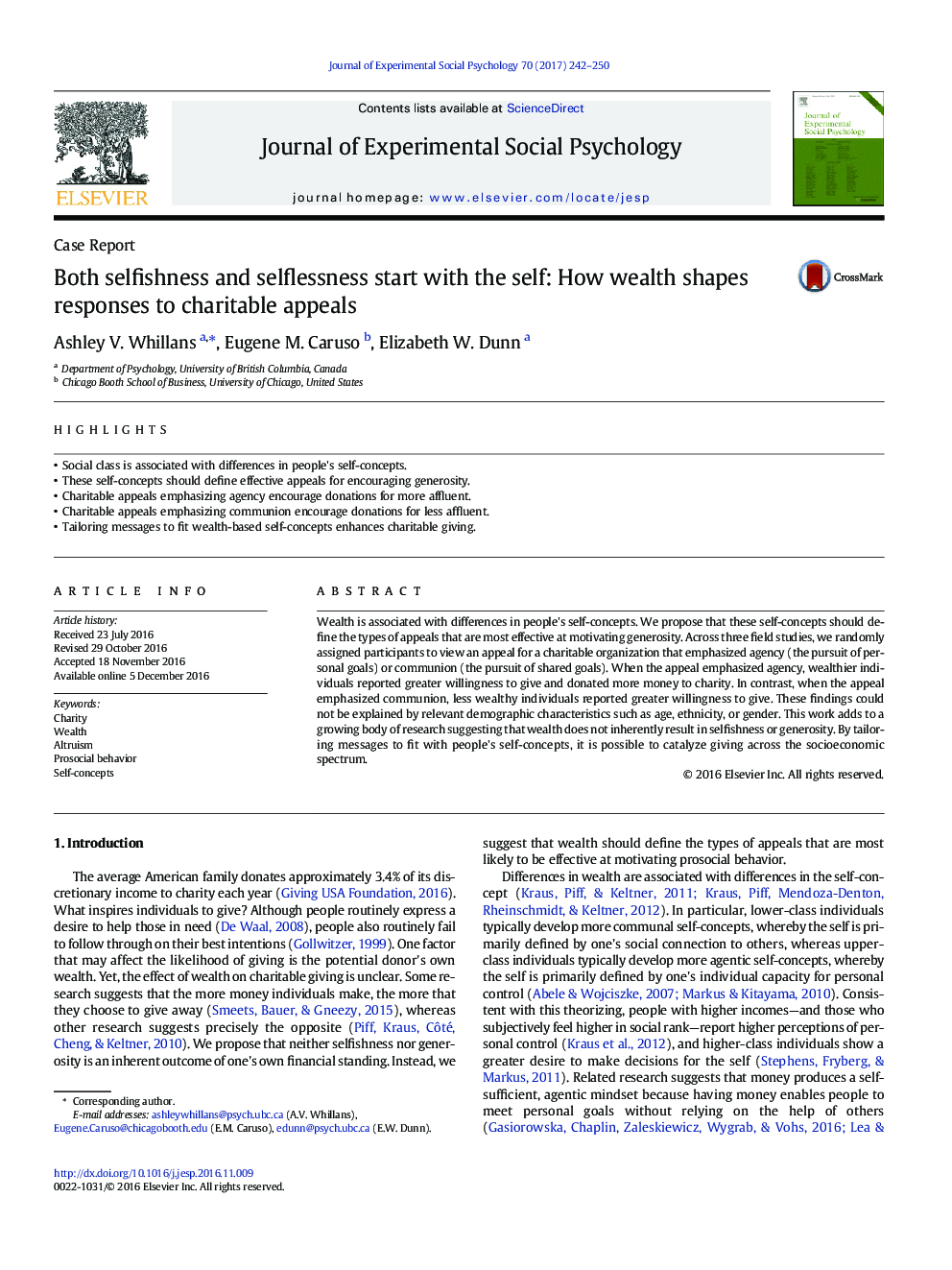| Article ID | Journal | Published Year | Pages | File Type |
|---|---|---|---|---|
| 5045656 | Journal of Experimental Social Psychology | 2017 | 9 Pages |
â¢Social class is associated with differences in people's self-concepts.â¢These self-concepts should define effective appeals for encouraging generosity.â¢Charitable appeals emphasizing agency encourage donations for more affluent.â¢Charitable appeals emphasizing communion encourage donations for less affluent.â¢Tailoring messages to fit wealth-based self-concepts enhances charitable giving.
Wealth is associated with differences in people's self-concepts. We propose that these self-concepts should define the types of appeals that are most effective at motivating generosity. Across three field studies, we randomly assigned participants to view an appeal for a charitable organization that emphasized agency (the pursuit of personal goals) or communion (the pursuit of shared goals). When the appeal emphasized agency, wealthier individuals reported greater willingness to give and donated more money to charity. In contrast, when the appeal emphasized communion, less wealthy individuals reported greater willingness to give. These findings could not be explained by relevant demographic characteristics such as age, ethnicity, or gender. This work adds to a growing body of research suggesting that wealth does not inherently result in selfishness or generosity. By tailoring messages to fit with people's self-concepts, it is possible to catalyze giving across the socioeconomic spectrum.
